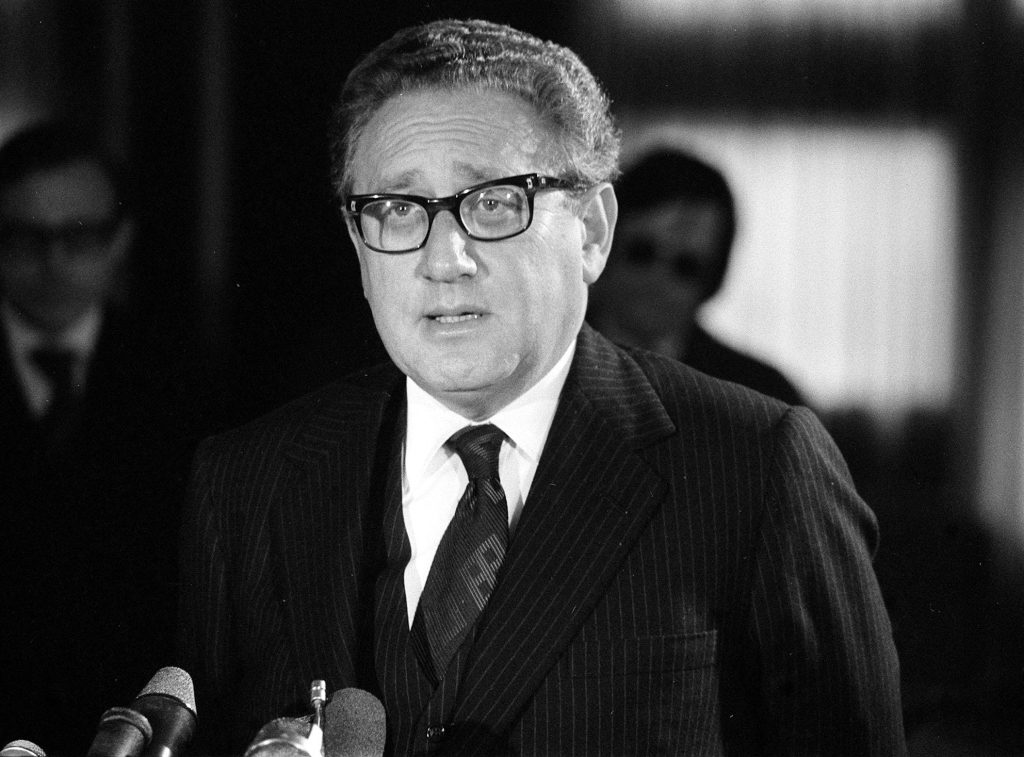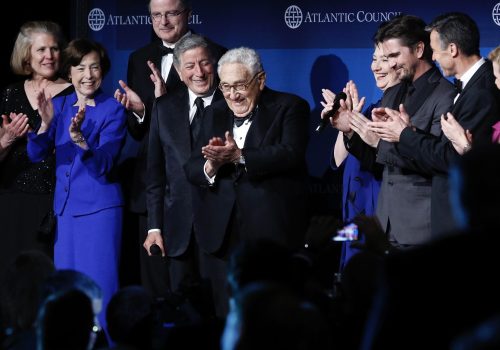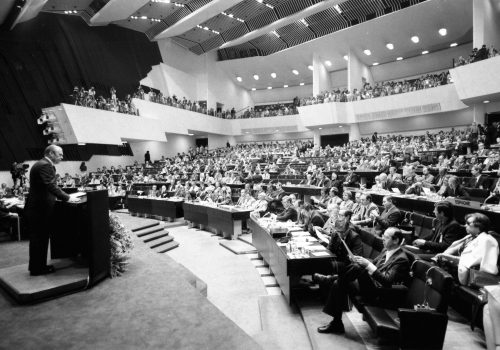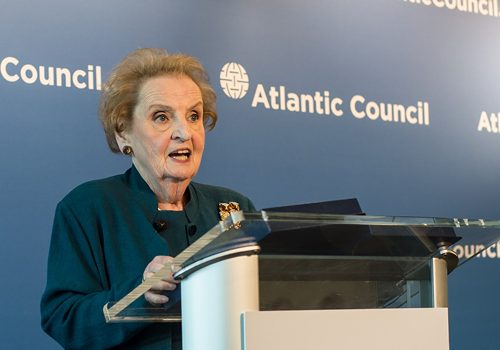Henry Kissinger, who passed away on Wednesday at the age of one hundred, was something of a role model for me. As a boy growing up in Missouri interested in foreign affairs, I was not familiar with the possible career paths in the field, but I was inspired by Kissinger’s prominent example.
Kissinger was a German Jewish refugee to the United States who fought for his adopted country in World War II. He was a Harvard professor who became famous for writing a best-selling book on limited nuclear war in the early days of the Cold War. He became national security adviser and then secretary of state to US President Richard Nixon, staying on to serve his successor, President Gerald Ford. After leaving office, he remained a sought-after guru and adviser on foreign affairs and geopolitics until his final days.
Poorly imitating Kissinger’s path produced a fulfilling career for me in academia, government, and at the Atlantic Council, where I lead a center named after Kissinger’s most successful protégé, Brent Scowcroft.
I had seen Kissinger before at various events, but it was still a great honor to spend an autumn morning with him in his home in New York City last year. Even though he had spent decades thinking about questions involving strategic superiority and democracy versus autocracy, he seemed genuinely interested in learning from my perspective. At a press conference in 1974, the then-secretary of state famously exclaimed, “What in the name of God is strategic superiority? What is the significance of it politically, militarily, operationally at these levels of numbers? What do you do with it?” He later backtracked, saying that this statement was due to his exhaustion after a long day of negotiations and that if the United States could not figure out what to do with a nuclear advantage, then a new generation of Soviet leaders would do so to the United States’ detriment.
This episode is emblematic of Kissinger’s intellectual flexibility. While he is often described as an arch realist, he was never doctrinaire. For instance, after making his name as an advocate of limited nuclear war as a way to get around Mutually Assured Destruction with the Soviet Union, he later changed his mind, fearing that limited nuclear war could not stay limited. Most recently, he came around to supporting NATO membership for Ukraine after initially opposing it.
Perhaps his most notable substantive foreign policy accomplishment, however, was the United States’ opening to China during the Cold War. While Nixon and Chinese leader Mao Zedong were also masterminds behind the move to flip communist China from the Soviet to the US camp, Kissinger played a prominent role in the most significant geopolitical realignment of the Cold War.
He established the model for national security adviser as strategist, personally advising the president in private and circumventing the bureaucracy to achieve his preferred policy outcomes.
There were advantages and disadvantages to this model and Scowcroft improved upon it by establishing the gold standard for the modern national security adviser as an “honest broker,” who transparently identifies and elevates competing views for a presidential-level decision.
While many former cabinet officials retire to a home in the mountains, Kissinger spent the next half century running a successful consulting business, writing articles and books, and advising US presidents and world leaders. Among his many other commitments, he was also the longest-serving member of the Atlantic Council’s board of directors.
Kissinger’s fame and impact may owe less to the brilliance of any single scholarly insight or foreign policy accomplishment and more to the sheer endurance and density of his contributions. He operated at the highest levels of the US foreign policy establishment for well over half a century from the publication of his first best-selling book in 1957 to his passing this week.
Kissinger’s PhD dissertation analyzed Klemens von Metternich and Robert Stewart (known as Viscount Castlereagh), world-historical statesmen who fundamentally reshaped their eras. Future historians will undoubtedly study how Kissinger reshaped his.
Matthew Kroenig is vice president and senior director of the Atlantic Council’s Scowcroft Center for Strategy and Security and the Council’s director of studies.
Note: This piece has been updated to correct the topic of Kissinger’s PhD dissertation.
Further reading
Wed, Nov 29, 2023
A tribute to Henry Kissinger, brilliant strategist and consummate Atlanticist
New Atlanticist By Frederick Kempe
Kissinger, the US foreign policy luminary and the Atlantic Council's longest serving board member, died Wednesday at age 100.
Fri, Sep 1, 2023
Fifty years later, the Helsinki process stands as a turning point for human rights in Europe
New Atlanticist By Daniel Fried
A half century after landmark meetings in Geneva and Helsinki, it is easier to see the CSCE's role in advancing human rights in Central and Eastern Europe.
Thu, Mar 24, 2022
Remembering a diplomatic trailblazer: Our experts reflect on Madeleine Albright’s lasting legacy
Experts react By
The first female US secretary of state and Atlantic Council International Advisory Board member passed away on March 23 at the age of 84. Here's what Council board members and staff had to say about her legacy.
Image: Henry Kissinger becomes US secretary of state on September 21, 1973. PA Images via Reuters.



